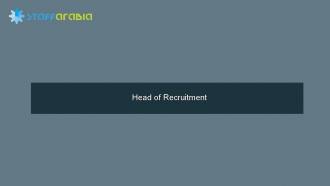Negotiating your salary during a job interview can be a nerve-wracking process, but with proper preparation and strategy, it can also be an opportunity to secure fair compensation for your skills and experience. This article will guide you through the essential steps to effectively negotiate your salary in an interview, ensuring you have the best chance of reaching a mutually beneficial agreement.
7 things to do, before You Negotiate Salary in an Interview:
1- Do your research: Prior to the interview, gather information about the industry standards and salary ranges for similar positions in the company and location. Websites like Glassdoor and salary surveys can provide valuable insights. This research will empower you with the knowledge to negotiate from an informed standpoint.
2- Don't rush the money talk: Timing is crucial when it comes to discussing salary. Let the employer bring up the topic first. Focus on showcasing your qualifications and enthusiasm for the role before transitioning into salary discussions. This allows you to build rapport and demonstrate your value before entering negotiations.
3- Think beyond the paycheck: While salary is important, consider other elements of the compensation package, such as benefits, bonuses, stock options, or flexible working arrangements. Assess your priorities and be open to alternative forms of compensation that might enhance your overall job satisfaction.
4- Be honest: Transparency and integrity are key throughout the interview process. Provide honest and accurate information about your qualifications, experience, and salary expectations. Deceptive practices can lead to a damaged professional reputation and potential rejection.
5- Don't volunteer a salary figure or range: It is generally best to avoid being the first to mention a specific salary expectation. Instead, aim to have the employer provide a number or range first. This tactic ensures that you have a better understanding of their expectations and gives you more leverage during negotiations.
6- Give a range according to the market and your job description: When discussing salary expectations, in case the employer did not provide a range. You should provide a range instead of a specific figure. This approach allows for flexibility and acknowledges that compensation can vary based on factors such as experience, education, and location. Ensure that the range you propose aligns with the market value for your role.
7- Don't assume you have to accept the first offer: Remember that salary negotiation is a standard part of the hiring process. Even in a challenging job market, it is acceptable to negotiate in good faith. Express your gratitude for the offer and professionally articulate your counterproposal based on industry standards, your qualifications, and the job's responsibilities.
Negotiating your salary during an interview requires thorough preparation, confidence, and effective communication. By conducting research, timing your discussions appropriately, considering the complete compensation package, and being honest and professional throughout the process, you position yourself for a successful negotiation outcome. Remember to be flexible, open to alternatives, and assertive in articulating your value. By mastering the art of salary negotiation, you can secure a fair and competitive compensation package that reflects your skills and contributions.
Find more tips for Interview HERE and and know how to make a good impression during your interview.
















